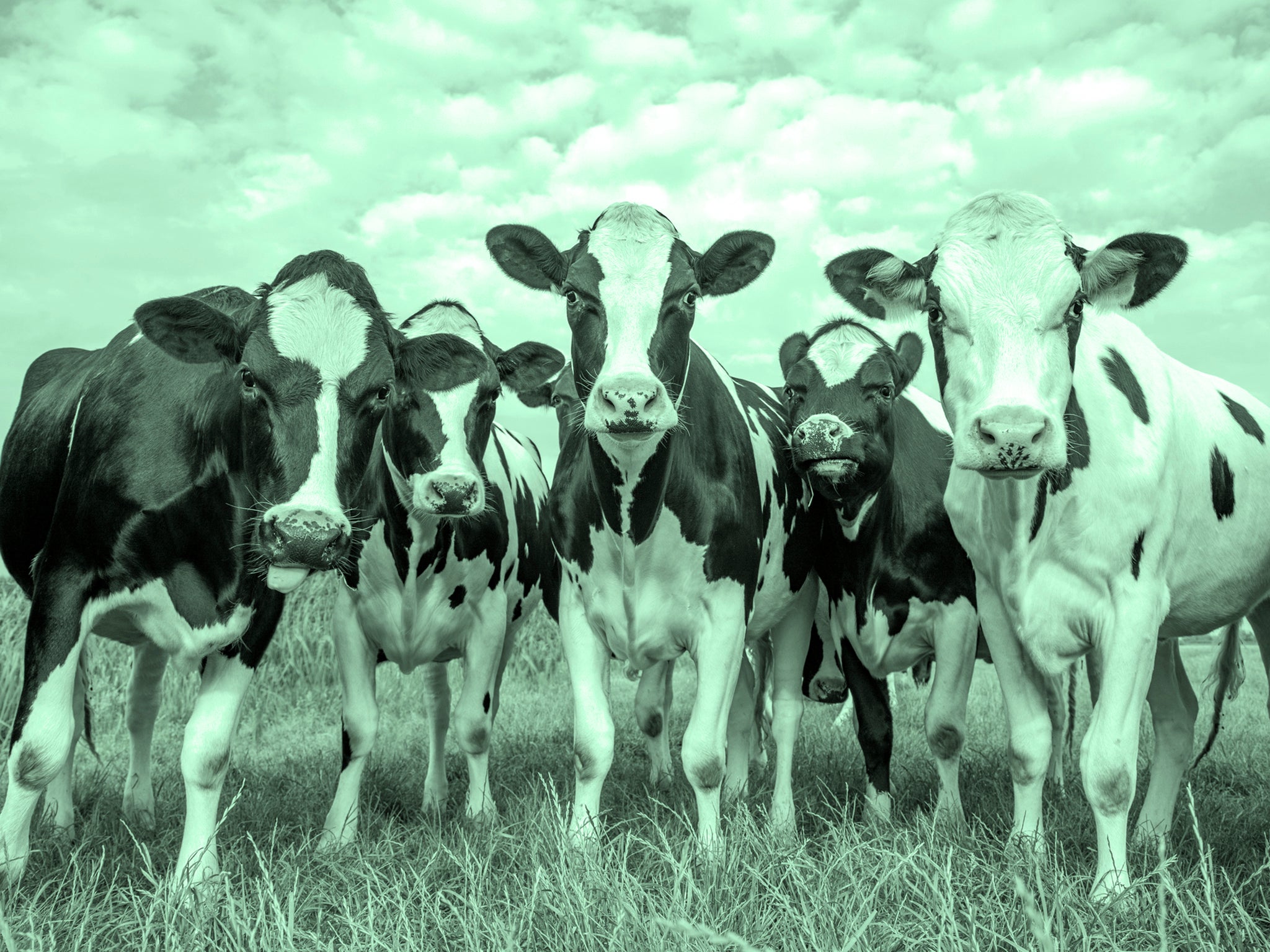Why must the world quickly tackle methane?
Hydrocarbon is significantly more potent a greenhouse gas than CO2

Methane is a hydrocarbon used to heat homes, power stoves and more – a fossil fuel. When burnt it produces carbon dioxide, a greenhouse gas, but methane itself is also a greenhouse gas, and a much more potent one.
Experts say getting methane emissions under control is of huge importance in the bid to curb global heating, the subject of tense negotiations at the Cop26 climate summit being held in Glasgow.
It is the main component of natural gas, and is also created in the guts of livestock. Currently levels of the gas in the atmosphere are at their highest since records began 40 years ago.
What is methane’s effect on global temperatures?
Methane is a greenhouse gas which traps significantly more heat over time than does carbon dioxide. According to the UN, it has accounted for about 30 per cent of global temperature rises since pre-industrial times.
The gas is so potent that cutting emissions by 45 per cent this decade could shave almost 0.3C off atmospheric temperatures by 2045, the UN’s Environment Programme found earlier this year.
Methane also contributes to the production of ozone – not higher in the atmosphere, but at ground level, where it is dangerous for humans. Hundreds of thousands of premature deaths could be averted with a swingeing cut to methane emissions, the UN said in spring.
Cutting methane emissions could give rapid results and help the world hit the 1.5C warming target agreed in Paris in 2015.
Because methane lingers in the atmosphere for about 10 years compared to carbon dioxide’s 1,000 years, “any reduction in methane emissions we can make now can have big impacts on slowing the rate of global warming very quickly”, according to Grant Allen, an atmospheric physicist from the University of Manchester.
Where does methane come from and how can we curb emissions?
Methane occurs naturally and is the main component of the gas used for powering homes. However, the process of extraction and transport can be leaky, with fuel producers’ pipelines and other infrastructure contributing to damaging emissions.
The International Energy Agency urged governments earlier this year to clamp down on the worst offenders, and also to require companies to design in ways of keeping methane leaks to a minimum.
However, agriculture is the main source of methane, according to the UN. Manure and flatulence from livestock forms a large part of the sector’s emissions, though rice paddies, where oxygen-poor soil is a haven for methane-producing bacteria, also contribute.
The UN says people moving away from meat-heavy diets would go a long way to reducing methane output because fewer cattle and other animals would be needed to meet demand. This is especially important given the world’s soaring population.
Farmers could give their livestock more nutritious feed, raising fewer, larger and more productive animals which overall would produce less methane, according to experts, while rice paddies could be periodically drained to allow the soil to oxygenate.
More familiar climate interventions would also have an effect, according to Drew Shindell, a climate specialist at Duke University in North Carolina. These include reducing food waste and switching to renewable energy – thereby lessening the demand for natural gas and reducing the amount extracted in the first place.
How have methane levels changed in recent years?
Overall, methane levels are at their highest since measurements began in the 1980s, the UN said earlier this year.
According to US climate experts, methane concentration in the atmosphere went up in 2020 despite the coronavirus pandemic – and by the largest amount in any year since 1983. However, the National Oceanic and Atmospheric Administration (NOAA) said fossil fuels were not “fully responsible”.
In fact, according to the International Energy Agency, methane emissions from the oil and gas industry fell in 2020.
In January this year, the body said: “Analysis indicates that a large part of the drop in methane emissions in 2020 occurred not because companies were taking more care to avoid methane leaks from their operations, but simply because they were producing less oil and gas.
“As such, there is clearly a risk that this downward trend will be reversed by an increase in production to fuel a rebound in global economic activity.”
The NOAA estimates the amount of methane in the atmosphere has increased by 6 per cent over the last two decades.
Subscribe to Independent Premium to bookmark this article
Want to bookmark your favourite articles and stories to read or reference later? Start your Independent Premium subscription today.

Join our commenting forum
Join thought-provoking conversations, follow other Independent readers and see their replies